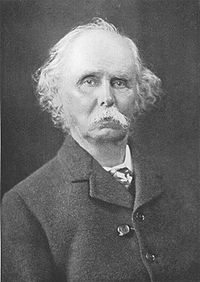WORKSHOP
REVISITING THE BOUNDARIES OF ECONOMICS
A Historical Perspective
Collegio Carlo Alberto, Moncalieri (Torino, Italy)
April 16, 2010
FRANCESCO CASSATA, ROBERTO MARCHIONATTI
Department of Economics "S. Cognetti de Martiis", University of Turin
Department of Economics "S. Cognetti de Martiis", University of Turin
The Darwin-Babbage Connection. Complexity and Biology in Alfred Marshall
Abstract
[forthcoming as "A transdisciplinary perspective on economic complexity. Marshall's problem revisited" Journal of Economic Behavior and Organization]
Excerpt
“Marshall’s problem” consists in finding a way to integrate physics and biology into economics in order to represent a complex economic world. It is widely believed that Alfred Marshall was the first to address the issue, but he failed to integrate the two methodological approaches into economics. In particular the prevailing view is that Marshall was unable to follow through on his declaration that biology is the “Mecca” of economics. This paper reconsiders “Marshall’s problem” by focusing on the intellectual connections among Darwin, Babbage and Marshall: it explores the relationship between Marshall’s view of complexity as a dialectical mixing of routine and variation and reconstructs the development of a powerful intellectual model that we call the “evolutionary machine”.
Excerpt
Introduction
The role of biology in Alfred Marshall’s methodology and theoretical analysis is a classic theme, which has been widely investigated by the historians of economic thought.
The spectrum of the interpretations includes hitherto three different positions. For some scholars, such as Philip Mirowski, biological analogies did not play any significant role in the intellectual structure of the Principles of Economics. They were introduced strategically just in order to make economics acceptable to a scientific community strongly influenced by the successes of biology.[1]
 A second interpretation stresses the relevance of biological references in Marshall’s vision of economics, particularly underlining the influence of Spencer’s view of social evolution. However, despite this acknowledgment, Marshall’s attempt to elaborate an “economic biology” is considered a substantial failure. For Brinley Thomas, for example, “economic biology remained promise rather than substance”.[2] Geoffrey M. Hodgson shares this argument, remarking the impact of Spencerism on Marshall’s though: “Marshall hitched his wagon to the Spencerian train, but encountered difficulties when Spencer’s prestige declined rapidly from its high point in 1890s”.[3] Camille Limoges and Claude Ménard, even showing the relevance of Darwin’s principle of divergence in Marshall’s analysis of industrial organization, end up considering the notion of representative firm as a “regression to pre-Darwinian biology”, as a fundamental shift from a populationist approach to a typological one, which marked “a turning point in the modern history of economics”.[4]
A second interpretation stresses the relevance of biological references in Marshall’s vision of economics, particularly underlining the influence of Spencer’s view of social evolution. However, despite this acknowledgment, Marshall’s attempt to elaborate an “economic biology” is considered a substantial failure. For Brinley Thomas, for example, “economic biology remained promise rather than substance”.[2] Geoffrey M. Hodgson shares this argument, remarking the impact of Spencerism on Marshall’s though: “Marshall hitched his wagon to the Spencerian train, but encountered difficulties when Spencer’s prestige declined rapidly from its high point in 1890s”.[3] Camille Limoges and Claude Ménard, even showing the relevance of Darwin’s principle of divergence in Marshall’s analysis of industrial organization, end up considering the notion of representative firm as a “regression to pre-Darwinian biology”, as a fundamental shift from a populationist approach to a typological one, which marked “a turning point in the modern history of economics”.[4] A third, recent interpretation, represented first of all by Tiziano Raffaelli and Simon Cook (but Whitaker, Hart and Niman should be added), identified in Marshall’s seminal idea of the self-development of mental machine - developed in his earlier studies in psychology and neuro-physiology - the core of his vision of economic and social evolution as the gradual absorption of novelties in an increasingly complex structure through successive phases of standardization and specialization.
Considering particularly fruitful this latter historiographical line, the present paper focuses on Marshall’s methodological issues, moving from his interpretation of complexity as a dialectical succession of routine and variation, order and disorder, machinery and life.
Want to read the full article? Contact us (see RBE Contacts in the home page)
Nessun commento:
Posta un commento